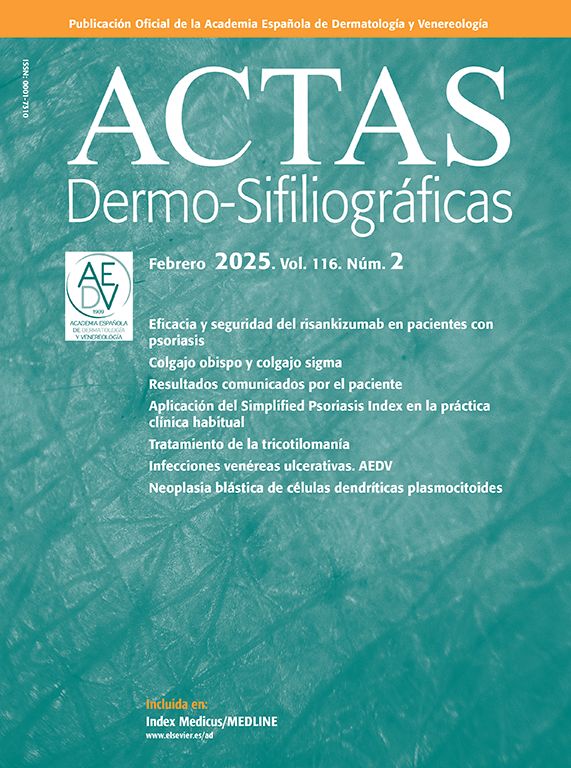A group of Australian researchers recently reported the results of a phase III clinical trial on oral nicotinamide for prevention of nonmelanoma skin cancer (NMSC) in the New England Journal of Medicine.1 The authors stated that the drug acts by favoring repair of cellular DNA, since it prevents depletion of cellular adenosine triphosphate, and by diminishing the immunosuppression induced by UV radiation. The administration of nicotinamide 500mg twice daily led to a statistically significant reduction (23%, 95%CI, 4%-38%) in the number of cases of NMSC (basal cell carcinoma and squamous cell carcinoma) and of actinic keratosis in patients with a history of ≥2 NMSCs in the previous 5 years. This reduction is more evident in patients with greater sun damage and who had previously presented a greater number of NMSCs.1 The effect disappeared 6 months after stopping nicotinamide.
Nicotinamide—an amide of niacin, or vitamin B3—is an essential water-soluble vitamin, which is not synthesized in the body; therefore, it must be included in the diet.2
It forms part of the coenzymes nicotinamide adenine dinucleotide and nicotinamide adenine dinucleotide phosphate, which are involved in various chemical reactions, including the production of energy in all types of cells.2 Furthermore, since it intervenes in the regulation of polyadenosine diphosphate ribose polymerase 1, an enzyme involved in DNA repair and expression of proinflammatory cytokines (tumor necrosis factor α, interleukin (IL) 1β, IL-6, and IL-8), it exhibits anti-inflammatory properties.2–4 Some studies have shown that topical administration has an antiaging effect, reduces transepidermal water loss, strengthens the skin barrier, enhances biosynthesis of ceramide and other lipids, and prevents the transfer of melanosomes from melanocytes to keratinocytes.2–4
Vitamin B3 deficiency leads to pellagra, which is characterized by the triad comprising diarrhea, dermatitis, and dementia.3
In dermatology, nicotinamide has been used both topically and orally for the treatment of acne, rosacea, atopic dermatitis, bullous pemphigoid, and skin aging, although most data on efficacy are from single cases or small series.4 The study by Chen et al.,1 on the other hand, is a pioneering randomized trial in the field of skin cancer.
Nicotinamide has a good safety profile. The excess is metabolized in the liver, and its degradation products are eliminated via the kidneys. When administered at doses of 1 to 3g per day, nicotinamide does not cause significant adverse effects, although a case of acute liver damage with 10g/d was reported in the literature; the effect resolved when the drug was stopped.5
In conclusion, nicotinamide is a readily available vitamin supplement that is safe and could prove useful in the prevention of NMSC, especially in patients with a history of multiple NMSCs.
We are grateful to Dr. Andrew Chen for his collaboration.
Please cite this article as: Escudero-Góngora M, Fernández-Peñas P. FR - Nuevas indicaciones de nicotinamida en dermatología. Actas Dermosifiliogr. 2016;107:777–778.





